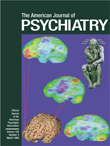Neurosurgery for Obsessive-Compulsive Disorder: Problems With Comorbidity
To the Editor: Ideal criteria for neurosurgery of refractory obsessive-compulsive disorder (OCD) include the absence of comorbid conditions. In practice, the rarity of patients with no comorbid conditions poses the problem of how strictly to apply this criterion. To address this question, we present the case of a patient whose OCD had an excellent response to surgery, which was largely negated by the worsening of other symptoms.
Ms. A, a 32-year-old single woman with long-standing OCD, had symptoms including cleaning compulsions, buying things on the “right day,” and the drive to eliminate “bad” or imperfect aspects of herself and her environment. Ten years of treatment, including behavior therapy and serotonin reuptake inhibitors with augmentation, resulted in no improvement. She depended on her family for financial support and could not complete her college degree. Her clinical picture was complicated by bulimia, kleptomania, and borderline personality disorder. There was a previous history of major depressive disorder, but she was not having an episode before the surgery.
Ms. A underwent bilateral anterior capsulotomy and had almost complete elimination of her OCD symptoms. Over the next several months, however, her kleptomanic and bulimic behaviors increased, despite some evidence suggesting these “OCD spectrum disorders” might respond to treatments for OCD (1). She also had a recurrence of severe major depression, which had thus far been unresponsive to four antidepressant trials.
One possible explanation for Ms. A’s depression is that it was a direct effect of the surgery. However, there are no other reports of this; instead, similar surgical procedures have relieved treatment-refractory depression (2).
Another possibility is that her depressive symptoms resulted in a gratifying dependency on her family. The exacerbation of background comorbid conditions may have been prompted by the need to maintain her dependent role and to punish her family (3). As she put it, “I don’t want to let them off the hook; they are not going to push me out.”
Alternatively, Ms. A’s depression may have resulted from the rapid, postsurgical loss of her compulsive, perfectionist “drive,” which she had employed defensively to overcome lifelong self-hatred. Although this is not a common outcome in our clinic, some patients find it difficult to make the adjustment to a significantly improved state of health when their OCD symptoms respond well to surgery.
Finally, Ms. A’s recurrent depressive episode may have been independently determined and ultimately responsible for the exacerbation of her bulimia, kleptomania, and personality disorder. The extensive comorbidities in this case make it very difficult to choose among these possibilities.
1. McElroy SL, Hudson JI, Pope HG, Keck PE, Aizley HG: The DSM-III-R impulse control disorders not elsewhere classified: clinical characteristics and relationship to other psychiatric disorders. Am J Psychiatry 1992; 149:318–327Link, Google Scholar
2. Diering SL, Bell WO: Functional neurosurgery for psychiatric disorders: a historical perspective. Stereotact Funct Neurosurg 1991; 57(4):175–194Google Scholar
3. Calvocoressi L, Lewis B, Harris M, Trufan SJ, Goodman WK, McDougle CJ, Price LH: Family accommodation in obsessive-compulsive disorder. Am J Psychiatry 1995; 152:441–443Link, Google Scholar



